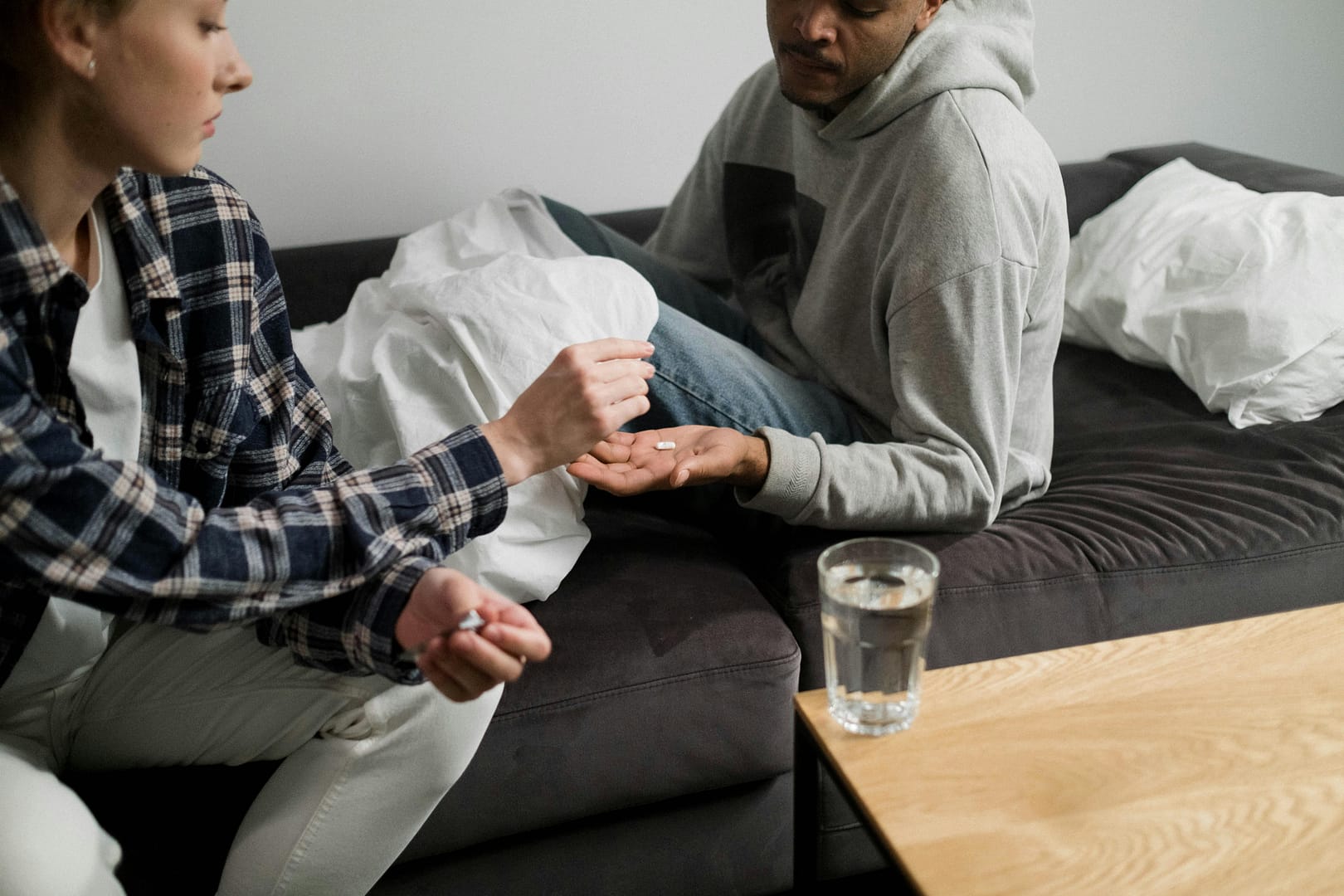
Antidepressant pills, like SSRIs, SNRIs, TCAs, and others, change brain chemicals such as serotonin, norepinephrine, and dopamine to improve mood and emotions. Doctors often prescribe them for depression, anxiety, and other mental health issues.
The effects of antidepressant pills can differ from person to person and depend on the specific medication. Some typical effects and considerations related to antidepressant pills include
Improvement in Mood: Many individuals experience an improvement in mood and a reduction in depressive symptoms after starting antidepressant treatment.
Reduction in Anxiety: Antidepressants treat anxiety disorders like GAD, social anxiety, and panic disorder by reducing feelings of anxiety and worry, along with physical symptoms like a racing heartbeat and sweating.
Time to Take Effect:
Antidepressant pills usually take time to work, and it can take several weeks to feel their full effects. In the beginning, some people may have side effects before they start feeling better from the medication.
Side Effects: Common side effects of antidepressant pills may include nausea, dry mouth, dizziness, drowsiness, insomnia, and sexual dysfunction (such as decreased libido or difficulty achieving orgasm).
Monitoring and Adjustment:
Healthcare providers usually keep a close eye on individuals when they start antidepressant treatment to check how well the medication works and to handle any side effects.
Continued Treatment:
Individuals prescribed antidepressant pills should keep taking the medication as directed by their healthcare provider, even if they feel better. Suddenly stopping antidepressants can cause withdrawal symptoms and a return of depressive symptoms.
Individual Variation: Not all antidepressant medications work the same way for everyone. It may take some trial and error to find the most effective medication and dosage for an individual, and what works well for one person may not work as effectively for another.
Libido and Antidepressants: Understanding the Connection
Overall, antidepressant pills can be an effective treatment option for many individuals with depression, anxiety, and other mental health conditions. However, individuals need to work closely with their healthcare provider to monitor their progress, manage side effects, and ensure they are receiving the most appropriate treatment for their needs.

Antidepressants can have varying effects on libido, depending on the individual and the specific type of medication. Here are some general observations:
Increase in Libido: For some individuals, especially those who were experiencing depression or anxiety that was inhibiting their libido, antidepressants can improve libido. This is because treating the underlying mental health condition can alleviate symptoms that are suppressing sexual desire.
Decrease in Libido:
Many antidepressants, like SSRIs and SNRIs, can lower libido as a side effect. They do this by changing serotonin levels in the brain, which can reduce sexual desire and arousal.
Other Factors:
It’s crucial to remember that many factors affect libido, not just medication. Mental and physical health, relationship dynamics, stress levels, and individual biology and psychology all play a role. Therefore, changes in libido while taking antidepressants might not be solely due to the medication.
Management: Adjusting the dosage, trying a different medication, or adding other therapies can sometimes help manage this side effect while still effectively treating depression.
Individual Variation: It’s important to recognize that everyone’s response to antidepressants is unique. While some people may experience a significant decrease in libido, others may not notice any change or may even experience an increase. Therefore, individuals must communicate openly with their healthcare providers about any changes they experience while taking antidepressants.
In summary, antidepressants can have a complex impact on libido, with effects varying widely among individuals. While some may experience a decrease, others may see an improvement or no change at all. Open communication with healthcare providers is key to managing any changes in libido while taking antidepressants.